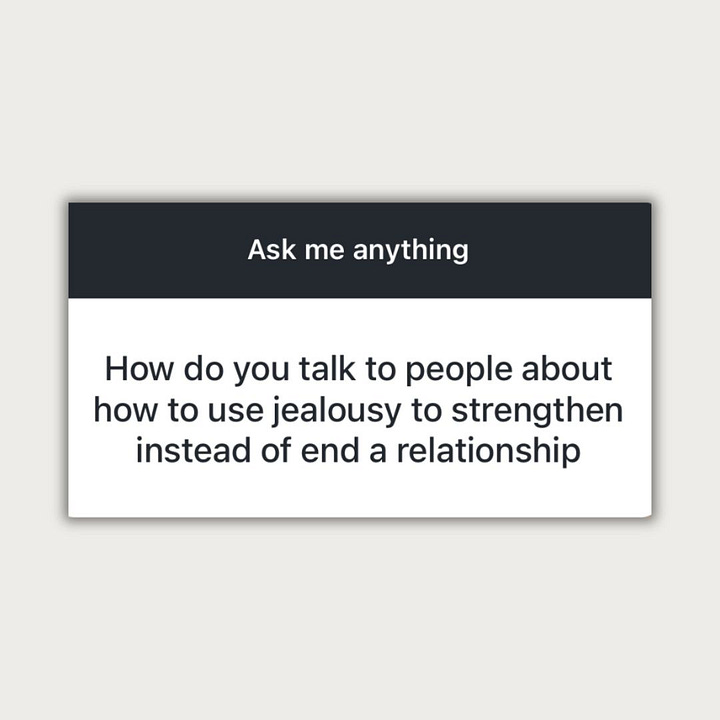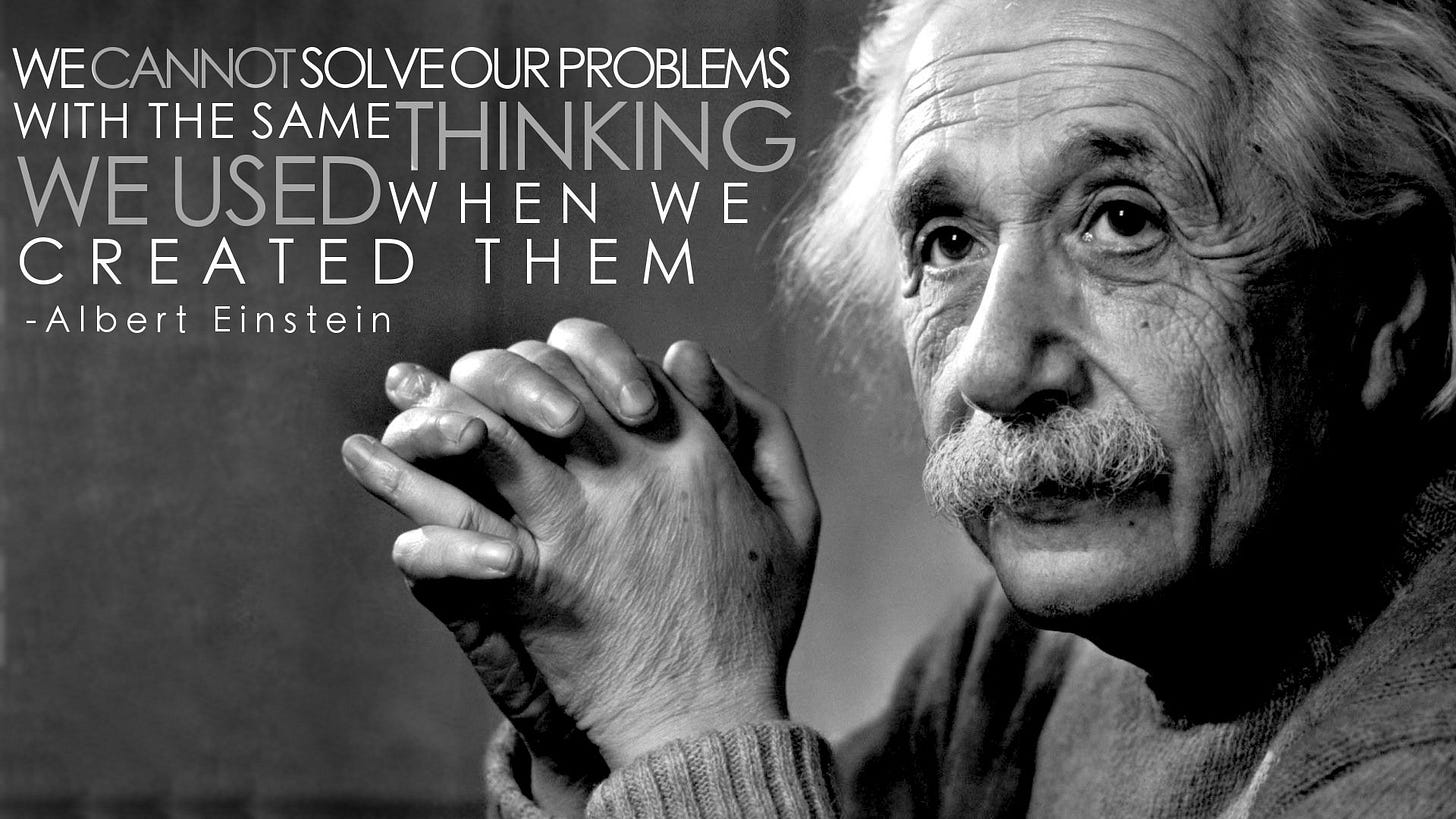💬 Ask Ally: The Jealousy Edition
An inclusive relationship advice column from couples coach Ally Iseman.
Welcome to the monthly relationship advice column Ask Ally, where I answer all of your burning questions about love, sex, dating, and modern relationships inclusive of ALL relationship styles!! These are real questions from real people like YOU.
This is part relationship advice, part sharing my own journey as a woman relating non-monogamously. Think Carrie Bradshaw but without the Aiden vs. Mr. Big showdown, because, thanks to expansive relationship dynamics, I can be with both of them!
The Ask Ally advice column and monthly Live videos are for supporting members only — below is a preview for free subscribers.
This month’s readers ask:




Paid subscribers of Passport 2 Pleasure can submit their own questions. I’ll select from those and answer anonymously for the benefit of all. The advice below is an overview of the important factors but may not get into the specific aspects of your unique scenario, in which case I encourage you to DM me your questions.
Let’s talk about Jealousy, baby.
Let’s start by talking about what jealousy is and is not. By defining the term Jealousy, we can make sure we’re all on the same page about this month’s topic.
Often thought of as a synonym for envy, jealousy is not the same. There is a subtle but important difference between the two. As defined by the Cambridge Dictionary:
Jealousy is a feeling of unhappiness and anger because someone has something or someone that you want.
Envy is the feeling that you wish you had something or someone that someone else has.
Did you notice the two key differences?
Jealousy is about losing something you already have, whereas Envy is about wanting what someone else has.
Envy is an emotion itself, whereas Jealousy is a mixture of other emotions like fear, unhappiness, and anger.
Understanding the type of jealousy you’re dealing with is essential in getting to the root emotions and working out the core causation. This is the first step in turning jealousy into a tool so it doesn’t turn you into one.
The green eyed monster.
There are many ways to turn the green-eyed monster from a nightmare under your bed into a tool for personal growth and—potentially—even greater intimacy.
This comes up so often with my clients that I created a handy resource compiling all my jealousy intelligence into concrete practices and actions you can start right now!
This takes me to the answer for that first question:
1. How do you talk to people about how to use jealousy to strengthen instead of end a relationship?
In this instance, I’ll assume “people” to mean your partner.
First, you have to understand which kind(s) of jealousy you’re dealing with—many of us will experience all of them at some point—and agree that your relationship is a safe space for getting uncomfortable. You both have to be willing to work on it together because the success of any relationship involves the effort of everyone involved.
Our entire society is built around staying comfortable and complacent, that something as emotionally uncomfortable as jealousy is to be avoided. Uncomfortable and unsafe are not the same thing—we can’t grow without getting at least a little uncomfortable.
Acknowledge that you have both been conditioned to avoid jealousy and make the shared commitment to lean in rather than run away from this feeling.
Include grace and space for mistakes as you learn a new skill.
Make sure you are a safe space for your partner to come to you with this vulnerability by being an example of doing so.
So you’ve both agreed to view and use jealousy as a tool for personal growth, greater connection, and deeper intimacy in your relationship—both with yourselves and each other. Now it’s time to consider if the type of jealousy you’re dealing with is something for you to work on yourself, or if it needs to be addressed within the relationship itself.
There’s a difference between asking your partner for extra support like more patience or more verbal affirmations while you navigate a challenging emotional experience and making them entirely responsible for managing and changing it.
2. What is a healthy and growth oriented way of dealing with it?
Above is step one. Now it’s time to release yourself of the title of Jealous Person. We are not our emotions. Emotions come and go, we are merely the container for them. This removes the personalization of the experience which can lead to unnecessary shame and self judgement.
There is no such thing as a “jealous person,” instead we are just a person experiencing jealousy.
Expanding your capacity—and the capacity of your relationship—to hold discomfort can be one of the most powerful skills you can develop and the impact will ripple out into every aspect of your life.
A big difference between mainstream mononormative “oppositional relationship” culture and expansive relationship dynamics is this core perspective on jealousy:
Jealousy is a perfectly natural and “normal” part of being a human relating and can be used as a tool for self development and personal growth rather than judging someone or ourselves for experiencing it and treating it as something to be avoided.
This is one of the main reasons I continue to recommend that everyone learn about consensual non-monogamy, even and especially couples who choose to remain monogamous. You can’t solve a problem from within the framework causing it.

Now that we have a better understanding of the positive personal and relational potential jealousy actually offers us, let’s explore why it’s happening in the first place. Read on to understand…
3. Why does it rear up when I know all is safe and secure in my relationship?
4. My wife is possessively jealous but I’m okay with her being with other men physically. Why?
As a paid subscriber, you get full access to the Ask Ally advice column — including DMing Ally your own questions — along with the archive of must-read posts and workshops and the ability to join the live chat during monthly Office Hours. Get the tools and skills you need to build the relationships you want and deserve without spending countless hours in therapy.
Keep reading with a 7-day free trial
Subscribe to Passport 2 Pleasure to keep reading this post and get 7 days of free access to the full post archives.






